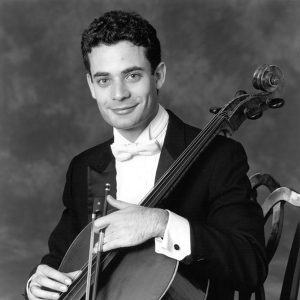
Holiday Blues
Mickey Katz
It’s an exciting time for the BSO, as we’re finishing a week of concerts and preparing to go on our first tour in a long time, playing some major pieces by Berlioz, Bartok, Harbison, Mozart, Carter, Brahms, Wagner, Ravel and Mahler (really). But every visit to a retail store or a coffee shop reminds all of us of the inevitable—the day after we return to Boston is our first concert of Holiday Pops. In just over a week, the Miraculous Mandarin will turn into Frosty the Snowman, and Daphnis and Chloe into Rudolf the Red-Nosed Reindeer.
The Boston Pops has been the alter ego of the Boston Symphony since 1885, and is an integral part of the job of orchestra members. During the holidays we’re required to do a good number of the concerts, but most players sign up for extra concerts, sometimes as many as 20 or 30 in the stretch of three weeks. Playing the same program of orchestrated Christmas songs over and over again can be extremely difficult mentally, and toward the end of the season these grown up, professional and accomplished musicians transform into bored children—throwing coins at the concertmaster during the White Christmas solo, wrapping up their chair in Christmas lights, or wearing a Hassidic costume (beard and all) and dancing around the stage during the Hanukkah number.
I have done none of these things. Which made me think how very few of us are lucky enough to play only music we love. Orchestral musicians in particular have little or no say in the repertoire they play, and most orchestras today try to appeal to new audiences by programming music that we as performers might strongly dislike.
So how do we deal with it? How do we play music we don’t want to play while keeping our musical integrity and our chops, and most importantly our sanity? One obvious answer that’s easy to overlook: like more things! Our training makes us picky (or even snobbish) about the music we play, but if we keep an open mind we can find wonderful things almost in any kind of music. Maybe not in the Symphonic chipmunks song sing-along, but there’s something to appreciate in any music we play, even when it wouldn’t be our choice of what to listen to, such as something in the orchestration or the skill of a guest artist.
Another thing is to look at the audience. You’ll often be shocked to see that they’re having a great time. Sure, I have the urge every now and then to take some lady by her fur coat and make her listen to a Bach suite, but for the moment I try to appreciate the fact that she really enjoys what I do and that the music I can’t stand gives her and many others great pleasure. As performing musicians, we always straddle the line between being artists and being entertainers. Sometimes it can be gratifying to enjoy the entertainer part of what we do for what it is.
On the more strictly cellistic side, playing brainless arrangements is a perfect opportunity to concentrate on the basics of our technique. While our instinct might tell us to slouch back and put in the minimum possible effort, we can achieve some good work (and avoid injury) by thinking of all those little things we don’t have time for while we practice real music—our grip, how we draw the bow, vibrato, fingerings, etc. I’ve had some new and enlightening understandings on how I play and what I can do differently playing long notes while the brass is blasting away something I care nothing for behind me.
We are often faced with situations we can do nothing about, as musicians as well as in every other aspect of life. Even when the situation can’t be controlled, it’s always possible to change our attitude toward it. When we change our perspective we change our experience. This is not an easy thing to do, but I hope I can manage it in the next three weeks.
Subjects: Orchestra
Tags: artistry, audience, bow technique, BSO, cello, cellobello, concerts, ensemble, Katz, Mickey, music, orchestra, orchestral musicians, Symphony Hall, Technique, vibrato
